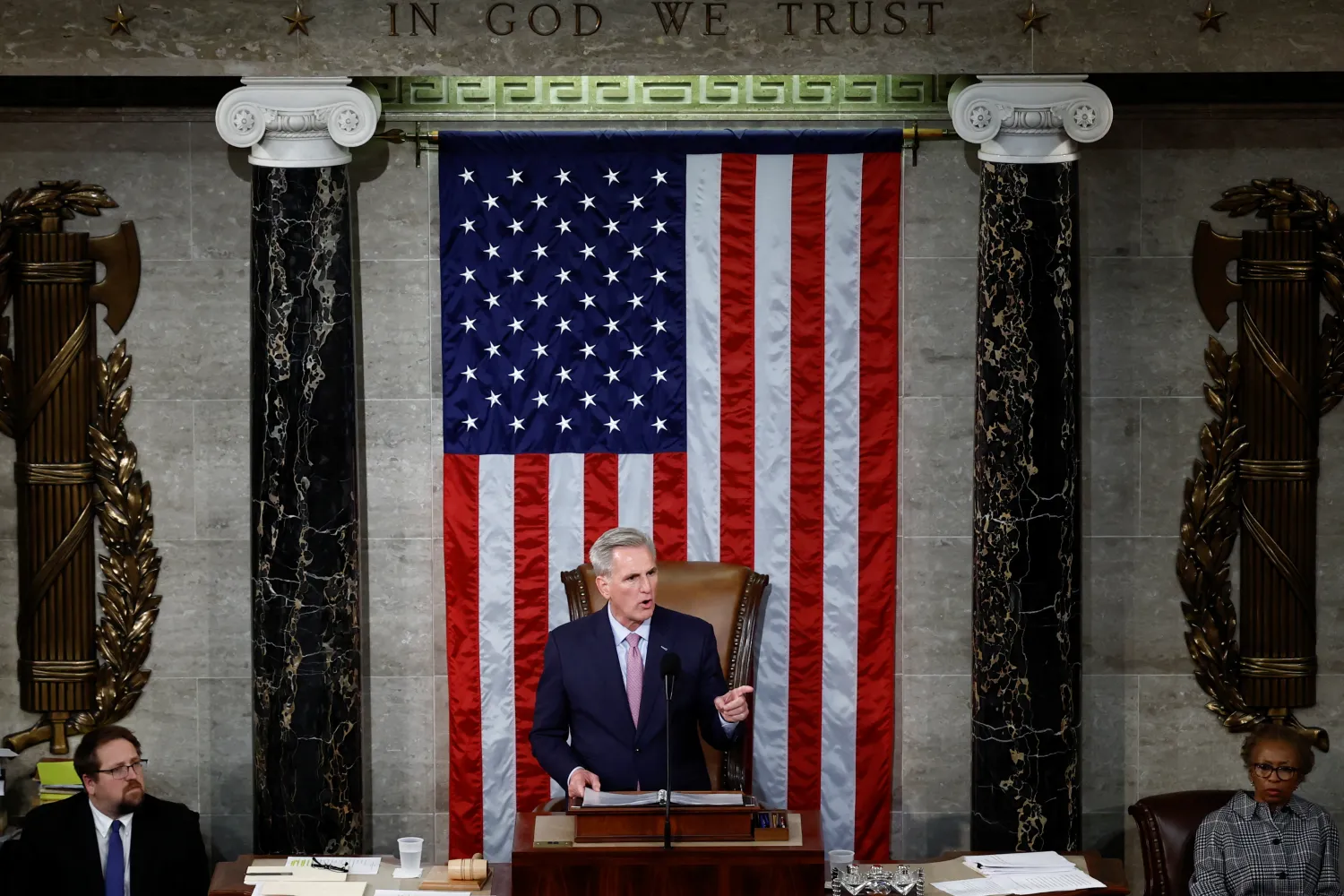In the realm of political drama and uncertainty, few events capture the attention of the American public quite like a federal government shutdown. These periods of political standoff often result in chaos, confusion, and real-world consequences for citizens and government employees alike. In 2023, the United States experienced yet another episode of a federal government shutdown, marking a significant moment in the nation’s political landscape. This article delves into the causes, impacts, and potential solutions surrounding the Federal Government Shutdown of 2023.
The Causes of the Shutdown
1.1 Partisan Gridlock
The primary cause of the federal government shutdown in 2023 was partisan gridlock. In a polarized political climate, elected officials from both major parties failed to reach a consensus on crucial budgetary matters. The Democrats and Republicans were at an impasse, with each side refusing to yield ground on their core priorities. This gridlock is emblematic of a broader issue within American politics – the inability to compromise for the greater good of the nation.
1.2 Budgetary Disagreements
At the heart of the shutdown were budgetary disagreements, with funding for key government programs and agencies being the central point of contention. These disputes ranged from disagreements over social spending to debates about military funding, immigration reform, and healthcare. With each side firmly entrenched in their positions, the budget process stalled, leading to a lack of funds to keep the government operational.
1.3 Lingering Effects of the COVID-19 Pandemic
The COVID-19 pandemic had far-reaching economic consequences, and its impact was still being felt in 2023. The pandemic had necessitated significant government spending to support struggling individuals, businesses, and healthcare systems. Lingering economic uncertainties, combined with rising inflation, exacerbated the budgetary disputes and added to the complexity of the situation.
1.4 Debt Ceiling Crisis
Simultaneously, the nation was grappling with a looming debt ceiling crisis. Failure to raise the debt ceiling could have dire consequences for the economy, potentially leading to a default on government debt. The debate over raising the debt ceiling became entangled with the budget negotiations, further complicating the situation.
The Impacts of the Shutdown
2.1 Economic Consequences
Federal government shutdowns have severe economic consequences. During such periods, government agencies cease non-essential operations, federal employees are furloughed or work without pay, and government contractors see their payments delayed. This disruption can lead to decreased consumer confidence, economic uncertainty, and even a slowdown in economic growth.
2.2 Services Disruption
Shutdowns also lead to disruptions in vital government services. National parks may close, tax returns processing may slow down, and crucial social services may be affected. For example, programs like WIC (Women, Infants, and Children) that provide nutrition support to low-income families may experience reduced funding, impacting vulnerable populations.
2.3 Negative Effects on Federal Employees
Federal employees bear the brunt of government shutdowns. Many face furloughs, meaning they are forced to take unpaid leave, creating financial strain for them and their families. Those who are deemed essential employees must work without pay until the shutdown is resolved, which can lead to significant financial stress.
2.4 Public Safety Concerns
Public safety is another critical concern during government shutdowns. Law enforcement agencies, border security, and air traffic control are among the essential services that continue to operate. However, there may be reduced staffing levels and delayed equipment maintenance, potentially compromising public safety.
2.5 Impact on Government Contractors
Government contractors, including businesses and individuals, often suffer financial losses during shutdowns. Delays in government payments can lead to cash flow problems, layoffs, and even business closures, particularly for smaller contractors heavily reliant on government contracts.
Potential Solutions
3.1 Bipartisan Negotiation and Compromise
The most sustainable solution to prevent future government shutdowns is bipartisan negotiation and compromise. Elected officials must prioritize the best interests of the nation over party loyalty. This involves reaching consensus on budgetary matters and working collaboratively to pass funding bills in a timely manner.
3.2 Budget Reforms
To mitigate the risk of shutdowns, budget reforms should be considered. Some proposals include changing the budget process to a biennial cycle or implementing automatic continuing resolutions to fund the government temporarily if budget negotiations stall.
3.3 Raising the Debt Ceiling
Addressing the debt ceiling crisis separately from budget negotiations is another vital step. Congress should act promptly to raise the debt ceiling and avoid potentially catastrophic consequences for the economy. This may involve bipartisan agreements to make the process less contentious.
3.4 Contingency Planning
Government agencies and contractors should develop contingency plans to minimize disruptions during shutdowns. These plans can include setting aside financial reserves, identifying essential services, and exploring options for temporary funding.
Conclusion
The Federal Government Shutdown of 2023 serves as a stark reminder of the challenges facing American politics today. The causes of the shutdown, rooted in partisan gridlock and budgetary disputes, had far-reaching impacts on the economy, public services, federal employees, and government contractors. To prevent such crises in the future, a commitment to bipartisan negotiation and compromise, budget reforms, addressing the debt ceiling, and effective contingency planning are essential. The American people deserve a government that works efficiently and prioritizes their well-being, rather than one plagued by recurrent shutdowns and political discord.
Featured Images Credit : Brookings Institution

